Senior Specialist
100+ Senior Specialist Interview Questions and Answers


Q. What will the tool do in a particular situation: return an error or continue without simulating due to a warning?
The tool will assess warnings and determine if simulation can proceed or if an error needs to be addressed.
Warnings indicate potential issues but do not always prevent simulation.
For example, a warning about input data format may allow the simulation to run with caution.
An error, however, will halt the simulation until resolved, such as missing critical parameters.
The tool should log warnings for review while allowing non-critical simulations to continue.

Asked in DE Shaw

Q. What documents are required to initiate a foreign remittance?
Documents required for foreign remittance include identification proof, proof of address, and purpose of remittance.
Identification proof such as passport or driver's license
Proof of address like utility bill or bank statement
Purpose of remittance document like invoice or agreement

Asked in HCL Group

Q. What are the key topics or concepts related to Checkpoint VPN?
Checkpoint VPN provides secure remote access to networks, ensuring data protection and user authentication.
Secure Remote Access: Checkpoint VPN allows users to securely connect to corporate networks from remote locations, ensuring data confidentiality.
Encryption Protocols: It employs strong encryption protocols like IPsec and SSL to protect data in transit, preventing unauthorized access.
User Authentication: Multi-factor authentication (MFA) can be implemented to enhance secu...read more

Asked in HCLTech

Q. How Active setup works and what is advertised shortcut
Active setup is a mechanism to ensure that software is installed correctly. Advertised shortcut is a shortcut that is created during installation.
Active setup is a registry key that runs a command to ensure that software is installed correctly
It is used to update or repair software installations
Advertised shortcut is a shortcut that is created during installation and points to a specific feature or component of the software
When the shortcut is clicked, it triggers the install...read more

Asked in Health Prime Services (India)

Q. Where can we check the global period time frame?
The global period time frame can be checked on the CMS website.
The CMS website provides information on the global period time frame for medical procedures.
The global period is a period of time during which all related services for a specific procedure are considered part of the initial procedure.
The global period time frame varies depending on the procedure and can range from 0 to 90 days.
By visiting the CMS website, one can access the Medicare Physician Fee Schedule (MPFS) d...read more

Asked in LTIMindtree

Q. What is the difference between the static and singleton design patterns?
Static pattern provides class-level access, while Singleton ensures a single instance of a class throughout the application.
Static classes cannot be instantiated; they provide utility methods (e.g., Math class in Java).
Singleton pattern restricts instantiation to one object (e.g., Logger class).
Static members are shared across all instances, while Singleton maintains state in its single instance.
Singleton can implement interfaces and be subclassed, while static classes cannot...read more
Senior Specialist Jobs




Asked in Elfonze Technologies

Q. How can one access or create an API in an Oracle Cloud Infrastructure (OCI) instance?
Accessing or creating an API in Oracle Cloud Infrastructure involves using Oracle's services and tools for deployment and management.
Use Oracle Functions: Create serverless APIs using Oracle Functions, which allows you to run code in response to events without managing servers.
Oracle API Gateway: Deploy and manage APIs securely with Oracle API Gateway, which provides features like authentication, rate limiting, and monitoring.
Oracle Cloud Infrastructure SDKs: Utilize SDKs (e....read more

Asked in HCLTech

Q. What are the details of SD-WAN and how does it work?
SD-WAN optimizes network performance by intelligently directing traffic across multiple connections.
SD-WAN stands for Software-Defined Wide Area Network.
It uses software to manage and optimize WAN connections, such as MPLS, LTE, and broadband.
SD-WAN enhances application performance by routing traffic based on real-time conditions.
For example, critical applications can be prioritized over less important traffic.
It provides centralized control and visibility, allowing for easie...read more
Share interview questions and help millions of jobseekers 🌟


Asked in Maersk

Q. What is the difference between accrued expenses and accrued income?
Accrued expenses are expenses that have been incurred but not yet paid, while accrued income is income that has been earned but not yet received.
Accrued expenses are recorded as liabilities on the balance sheet, while accrued income is recorded as assets.
Accrued expenses are typically associated with expenses such as salaries, interest, and taxes, while accrued income is typically associated with revenue such as interest income, rent, and royalties.
Accrued expenses are recogn...read more

Asked in HCLTech

Q. What is a Distribution List in Exchange Server?
A Distribution List in Exchange Server is a group of email recipients that can be addressed as a single recipient.
Used to send emails to multiple recipients at once
Can be created and managed by users or administrators
Can include both internal and external email addresses
Can be used for sending newsletters, announcements, etc.

Asked in HCLTech

Q. What is a shared mailbox in Exchange Server?
A shared mailbox in Exchange Server is a mailbox that multiple users can access to send and receive emails.
Allows multiple users to access the same mailbox
Users can send and receive emails on behalf of the shared mailbox
Useful for departments or teams to manage a common email address
Can be set up with permissions to control access levels
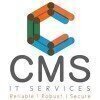
Asked in CMS IT Services

Q. What is Active Directory Domain Services (ADDS)?
ADDS is a service provided by Microsoft Windows Server for managing users, computers, and resources in a network.
ADDS is a directory service used to store information about network resources such as users, groups, and computers.
It allows administrators to manage and secure resources within a network.
ADDS uses a hierarchical structure with domains, trees, and forests to organize network resources.
It provides features like single sign-on, group policy management, and authentica...read more

Asked in HCLTech

Q. 1. Explain GKE Architecture 2. Difference between VPC peering and VPC sharing 3. How load balancer works?
GKE Architecture is a managed Kubernetes service provided by Google Cloud Platform.
GKE Architecture consists of master nodes and worker nodes.
Master nodes manage the Kubernetes cluster and worker nodes run the applications.
GKE provides automated scaling, monitoring, and management of the Kubernetes cluster.
GKE integrates with other Google Cloud services for seamless deployment and management.

Asked in Business Integrity Services

Q. What Authorization denial? What is the denial code for maximum benefits got exhausted? How do you resolve duplicate claim denial?
Authorization denial codes and resolution for maximum benefits exhaustion and duplicate claims.
The denial code for maximum benefits exhausted is typically CO-119.
To resolve a duplicate claim denial, investigate the reason for the duplication such as incorrect billing or coding, and resubmit with corrections.
Ensure proper documentation and communication with the insurance company for authorization denials.
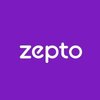
Asked in Zepto

Q. How would you work on data if there were limited source headers?
Utilize data transformation techniques and domain knowledge to extract insights from limited source headers.
Analyze existing headers to understand data context and relationships.
Use data imputation techniques to fill in gaps, such as mean or median substitution.
Leverage domain knowledge to infer missing data points, e.g., using medical history to predict patient outcomes.
Implement data aggregation methods to summarize information from limited headers.
Consider using machine le...read more

Asked in Maersk

Q. What do you know about import and export?
Import and export involves the movement of goods and services across international borders.
Import refers to bringing goods or services into a country from abroad.
Export refers to sending goods or services to another country for sale or trade.
Import and export activities are regulated by customs authorities and may involve tariffs, quotas, and other trade barriers.
Examples of commonly imported goods include electronics, clothing, and automobiles.
Examples of commonly exported g...read more

Asked in LTIMindtree

Q. How did you implement dependency injection in .NET Core?
Implemented dependency injection in .NET Core using built-in services and custom configurations for better modularity and testability.
Utilized the built-in IServiceCollection interface to register services in Startup.cs.
Example: services.AddTransient<IMyService, MyService>(); for transient lifetime.
Configured scoped services for database contexts: services.AddDbContext<MyDbContext>(options => options.UseSqlServer(connectionString));
Used constructor injection in controllers to...read more

Asked in HCLTech

Q. What is Problem Management? What is PTask ?
Problem Management is the process of identifying, analyzing, and resolving IT issues to prevent future incidents. PTask is not a known term.
Problem Management aims to minimize the impact of incidents on business operations.
It involves identifying the root cause of incidents and implementing solutions to prevent their recurrence.
PTask is not a commonly used term in ITIL or ITSM frameworks.
However, it could refer to a specific task within a problem management process.
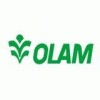
Asked in Olam

Q. Given a purchase transaction, how do you calculate the foreign exchange gain or loss?
Calculate forex gain/loss by comparing transaction currency rates at purchase and payment times.
Identify the transaction currency and the base currency for conversion.
Determine the exchange rate at the time of purchase.
Determine the exchange rate at the time of payment.
Calculate the amount in base currency at both rates.
Forex gain/loss = Amount at payment rate - Amount at purchase rate.
Example: Purchase $1,000 at 1.2 (base currency = EUR), payment at 1.3.

Asked in LTIMindtree

Q. What is involved in a soft skills assessment?
Soft skills assessment involves evaluating an individual's interpersonal skills, communication abilities, emotional intelligence, and other non-technical qualities.
Assessing communication skills through interviews or written exercises
Evaluating teamwork and collaboration through group activities or simulations
Measuring problem-solving and critical thinking skills through scenarios or case studies
Assessing emotional intelligence through situational judgment tests
Evaluating lea...read more

Asked in HCLTech

Q. Write a script to develop a well-architected AWS infrastructure in Terraform.
Develop a well Architect AWS infrastructure in Terraform
Define the required AWS resources in Terraform configuration files
Use modules to organize and reuse code for different components
Leverage Terraform best practices such as state management and variable usage
Implement security best practices like IAM roles and policies
Utilize Terraform's plan and apply commands to create and update infrastructure

Asked in LTIMindtree

Q. What advanced tools are you familiar with?
I have advanced knowledge in tools such as Tableau, Python, SQL, and Excel for data analysis and visualization.
Proficient in Tableau for creating interactive dashboards and visualizations
Strong skills in Python for data manipulation and analysis
Extensive experience with SQL for querying databases
Advanced proficiency in Excel for data cleaning and modeling

Asked in LTIMindtree

Q. What are the different properties used in Dev Studio?
Properties used in Dev Studio include rules, data instances, classes, and application components.
Rules: Define the behavior of the application, such as flows, activities, and UI rules.
Data Instances: Store data used by the application, such as data tables and data pages.
Classes: Define the structure of data and rules in the application.
Application Components: Include portals, harnesses, sections, and case types.

Asked in HCLTech

Q. What is RBAC? How is access certification done?
RBAC stands for Role-Based Access Control. Access certification is done by reviewing and verifying user access rights based on their assigned roles.
RBAC is a security model that restricts system access based on the roles assigned to users.
Access certification involves reviewing and verifying user access rights to ensure they align with their job responsibilities.
Access certification can be done manually or through automated tools.
Examples of RBAC include granting a doctor acc...read more
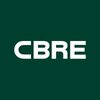
Asked in CBRE

Q. 1)Difference between provision and accrual
Provision is an estimated liability, while accrual is a recognized expense.
Provision is an estimated liability that is recognized when there is a probable obligation and the amount can be reasonably estimated.
Accrual is a recognized expense that is recorded when it is incurred, regardless of when the payment is made.
Provision is typically used for uncertain or contingent liabilities, such as legal claims or warranties.
Accrual is used for regular expenses, such as salaries, re...read more

Asked in LTIMindtree

Q. What are Active Directory Sites and Services?
Active Directory Sites and Services is a Microsoft Management Console (MMC) snap-in that allows administrators to manage the replication of directory data between sites in an Active Directory forest.
It is used to configure and manage the replication topology of Active Directory Domain Services (AD DS) within a site and between sites.
Administrators can create sites to represent the physical structure of their network and define the replication connections between sites.
Sites h...read more

Asked in LTIMindtree

Q. What functions does the SAP Analytics Cloud server provide?
SAP Analytics Cloud server functions include data visualization, planning, predictive analytics, and business intelligence.
Data visualization: Create interactive dashboards and reports to visualize data insights.
Planning: Collaborate on budgets, forecasts, and plans with integrated planning tools.
Predictive analytics: Use machine learning algorithms to forecast trends and outcomes.
Business intelligence: Gain insights into business performance with advanced analytics capabilit...read more

Asked in MOURI Tech

Q. What real-time issues did you face while implementing the project?
Real time issues can arise due to hardware, software, network or user errors.
Hardware failure can cause delays or complete shutdowns
Software bugs can cause crashes or incorrect data processing
Network issues can cause slow data transfer or loss of connectivity
User errors can lead to incorrect data input or misuse of the system

Asked in LTIMindtree

Q. Given a string, find the second most frequent character using streams.
Use streams to find and output the code of the second most frequent character in a string.
Use Java streams to convert the string to a character array
Use Collectors.groupingBy to group characters by count
Sort the map by value to find the second most frequent character
Return the code of the second most frequent character

Asked in Iron Mountain Inc

Q. What is the difference between active and passive file transfers in FTP?
Active file transfer requires a direct connection between the client and server, while passive file transfer uses a third-party server as an intermediary.
Active file transfer involves the client initiating the connection and actively sending/receiving data.
Passive file transfer involves the server initiating the connection and the client passively receiving data.
Active file transfer requires the client to open a port for data transfer, while passive file transfer uses a fixed...read more
Interview Questions of Similar Designations
Interview Experiences of Popular Companies




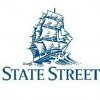
Top Interview Questions for Senior Specialist Related Skills



Reviews
Interviews
Salaries
Users

















